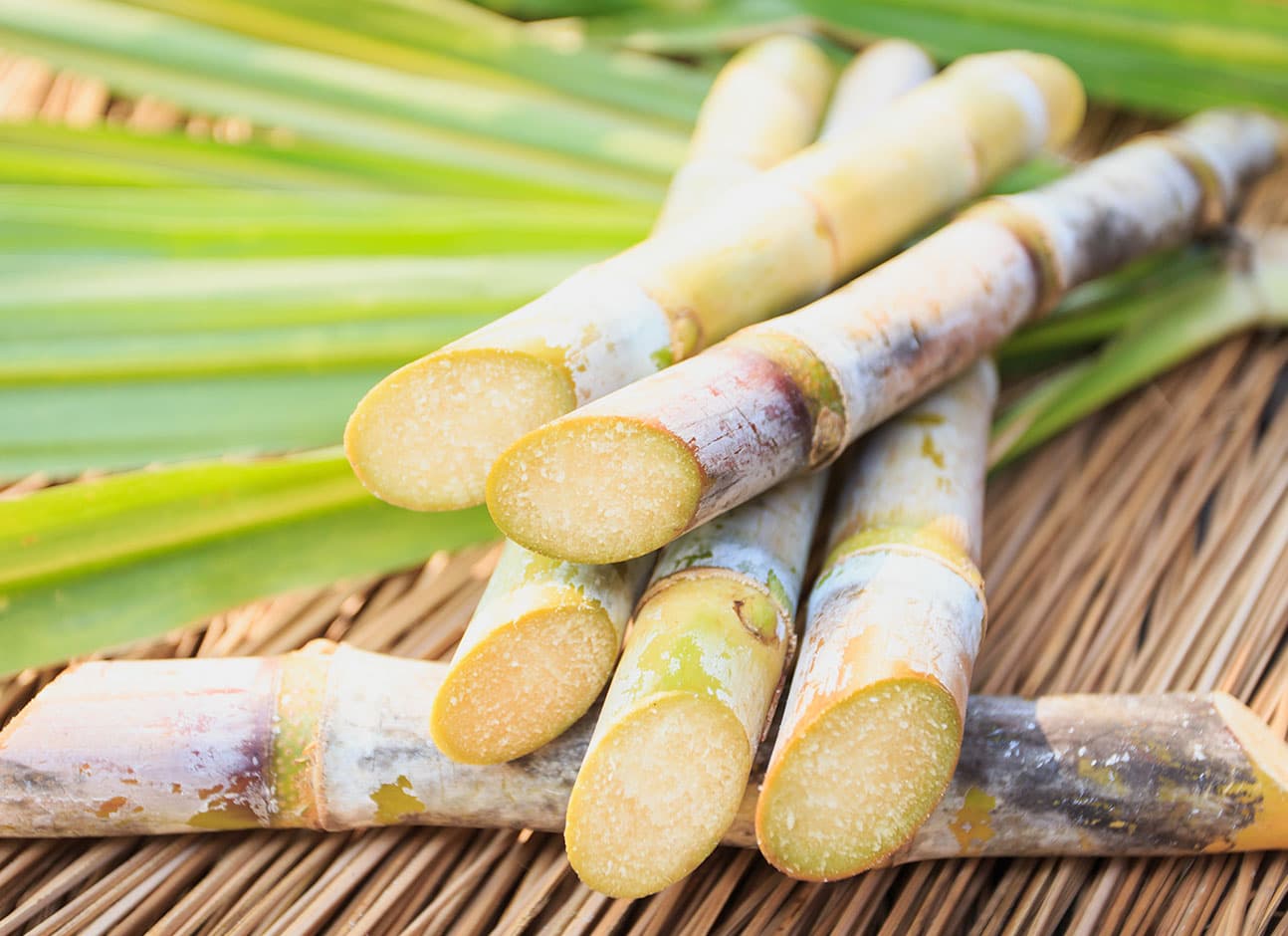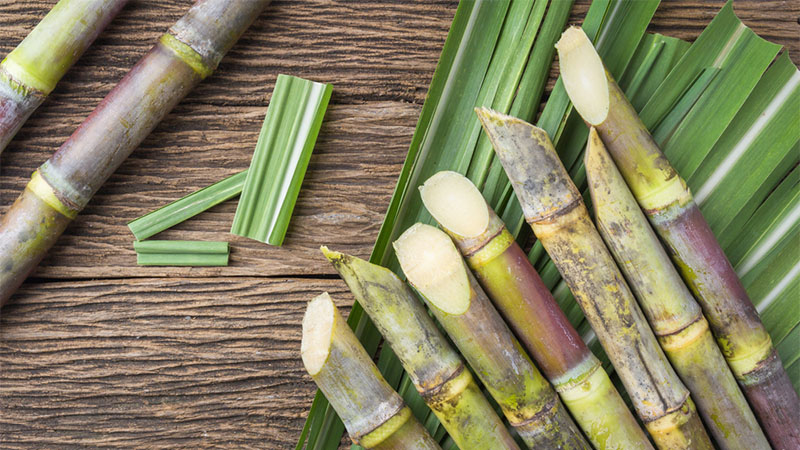Introducing the Relevance of Sugar Canes: What Are Sugar Canes Made Use Of For in the Cane Sugar Market?
Sugar walking sticks offer as the foundation of the cane sugar sector, primarily supplying the raw material required for sugar manufacturing. Their ability to transform sunlight into sucrose through photosynthesis is important. Past their sweetening residential properties, sugar canes locate utility in different culinary applications and emerging industries. Nonetheless, the full level of their influence expands past the kitchen area. This conversation will certainly explore the multifaceted functions of sugar canes in both industry and economic situation.
The Function of Sugar Canes in Sugar Production
Sugar walking canes function as the foundational basic material in the walking stick sugar industry, playing a critical role in the production process. These tall, seasonal grasses grow in subtropical and tropical climates, where they soak up sunshine and nutrients to produce sucrose. The harvesting of sugar walking canes normally occurs when the plants reach maturation, maximizing their sugar content.Once gathered, the canes go through crushing to draw out the juice, which consists of liquified sugars. This juice is then clarified and focused via evaporation, transforming it right into a syrup. Subsequently, formation takes place, enabling for the separation of sugar crystals from the remaining syrup.The extracted sugar undertakes further refining to attain the wanted purity and quality - What Are Sugar Canes Used For. As a result, the whole process highlights the necessary payment of sugar canes to sugar production, underscoring their significance as both a raw product and a driver in the production of walking cane sugar

Diverse Applications in Food and Drink Market
In the food and beverage sector, sugar walking cane offers multiple essential functions. It acts not only as a primary sugar in different items however additionally as a flavoring representative that enhances taste profiles. Additionally, its parts play a substantial role in fermentation and purification processes, contributing to the manufacturing of alcoholic beverages.
Sweetener in Products

The flexibility of cane sugar as a sweetener makes it a staple in a broad array of food and beverage items. Widely utilized in baked items, it enhances the taste and structure of cakes, cookies, and pastries by supplying dampness and advertising browning during baking. In beverages, walking cane sugar is a preferred selection for sweetening soft drinks, juices, and teas, allowing for a well balanced taste profile. Furthermore, it functions as an essential ingredient in sauces, marinades, and dressings, adding to an unified mix of tastes. Walking cane sugar's ability to liquify promptly and its consistent sweet taste account additionally solidify its duty as a preferred sweetener - What Are Sugar Canes Used For. On the whole, its varied applications highlight the integral function of walking stick sugar in the culinary landscape
Flavoring Representative Use
Utilizing walking cane sugar as a flavoring agent expands past its duty as a mere sweetener, improving a variety of culinary productions. In the food and drink market, it boosts taste profiles by stabilizing level of acidity and resentment, making it an essential element in marinates, dressings, and sauces. Additionally, cane sugar adds to the total mouthfeel, supplying a positive structure in baked products and confections. Its caramelization during cooking includes deepness to both wonderful and mouthwatering meals, while likewise working as a preservative in jellies and jams. In beverages, cane sugar is employed to intensify flavors in mixed drinks and soft drinks, making certain an extra delightful drinking experience. This adaptability emphasizes its importance in diverse culinary applications.
Fermentation and Distillation
Walking stick sugar plays a considerable role in fermentation and distillation procedures, which are important in producing a selection of liquors and foodstuff. Throughout fermentation, yeast transforms sugars into alcohol and carbon dioxide, an essential action in crafting drinks like rum and vodka. Distillation additionally detoxifies these alcoholic combinations, focusing flavors and boosting alcohol content. Past drinks, cane sugar is likewise indispensable in generating vinegar and particular food additives with fermentation. The versatility of walking cane sugar boosts the taste profiles and high quality of these items, making it vital in the food and beverage sector. Its payment not only supports conventional approaches but also cultivates advancement in crafting brand-new flavors and experiences for consumers.
Sugar Canes in Biofuel Production
As interest in sustainable energy resources expands, sugar walking canes are progressively acknowledged for their capacity in biofuel production. The biomass obtained from sugar walking sticks can be transformed into ethanol, a sustainable fuel option that reduces greenhouse gas exhausts compared to nonrenewable fuel sources. This process commonly involves fermenting the sugar removed from the walking cane, which is after that distilled to create high-purity ethanol suitable for usage in vehicles.Additionally, sugar cane bagasse, the fibrous residue left after juice removal, can be utilized as a feedstock for bioenergy. It can be burned to create steam and electrical power, adding to energy self-sufficiency in sugar mills. Nations such as Brazil have efficiently incorporated sugar cane biofuel right into their energy policies, resulting in lowered reliance on imported gas - What Are Sugar Canes Used For. On the whole, sugar walking canes represent an encouraging method for biofuel manufacturing, aligning farming exercise with environmental sustainability goals
Industrial Uses of Sugar Canes
While often acknowledged largely for sugar manufacturing, sugar canes additionally have varied industrial applications that expand well past the food field. The coarse byproducts of sugar cane, called bagasse, serve as a valuable resource in numerous markets. Bagasse is generally utilized as a biofuel, generating power in sugar mills and other centers. Furthermore, it can be processed into paper, cardboard, and eco-friendly products, promoting sustainable practices.In enhancement, sugar canes add to the production of molasses, a by-product made use of in the fermentation process for creating alcohol and yeast. This adaptability makes sugar canes indispensable to the beverage and pharmaceutical industries. In addition, sugar walking cane extracts are used in the cosmetics field, providing all-natural ingredients for skincare and beauty products. On the whole, the industrial uses sugar canes highlight their value past sugar, showcasing their function in promoting sustainability and sustaining numerous fields.
Economic Influence of Sugar Walking Stick Farming
The financial influence of sugar walking stick cultivation is significant, largely via job creation and export earnings generation. This industry not just gives employment opportunities in backwoods however also adds substantially to nationwide economies by means of exports. Comprehending these facets highlights the critical function sugar walking cane plays in both neighborhood and international markets.
Job Production Opportunities
Frequently overlooked, the sugar cane industry plays a vital duty in job creation, substantially influencing local economies. published here The farming, harvesting, and handling of sugar cane create many work possibilities, from field workers to factory personnel. In numerous regions, these jobs offer source of incomes for countless family members, contributing to neighborhood stability Full Report and growth. Furthermore, supplementary sectors such as transportation, equipment production, and retail benefit from the sugar walking stick market, more increasing employment alternatives. Seasonal job during growing and harvest times additionally sustains temporary settings, permitting employees to make earnings in or else lean periods. In general, the sugar walking cane market functions as an essential economic engine, promoting work creation and improving the lifestyle for several people and communities.
Export Revenue Generation
Lasting Practices in Sugar Walking Cane Farming
While traditional sugar walking stick farming techniques have typically brought about environmental destruction, an expanding number of farmers are taking on sustainable approaches that focus on ecological balance. These practices consist of crop turning, which boosts dirt fertility and lowers pest outbreaks, and using organic plant foods to lessen chemical runoff. Additionally, some farmers are carrying out incorporated parasite administration strategies, which concentrate on using natural predators and biopesticides rather than dangerous chemicals.Water conservation techniques, such as drip irrigation, are additionally obtaining grip, permitting effective water use while maintaining plant wellness. Moreover, several farmers are buying renewable energy sources, such as biomass from sugar cane waste, to power procedures and minimize their carbon impact. These lasting practices not only shield ecosystems yet additionally improve the lasting viability of sugar walking cane farming, making certain that it can continue to fulfill worldwide sugar demands while minimizing ecological influence.
Often Asked Concerns
How Are Sugar Canes Harvested and Processed?
Sugar walking canes are gathered using mechanical cutters or hands-on methods, after that moved to factories. There, they undertake cleaning, crushing, and removal procedures to obtain juice, which is after that cleared up, vaporized, and taken shape into sugar.
What Is the Nutritional Worth of Sugar Walking Cane?
The nutritional value of sugar cane includes carbs, largely in the form of sucrose, in addition to trace quantities of minerals and vitamins like calcium and potassium. It is reduced in healthy protein and fat content in general.
Can Sugar Walking Cane Be Grown in Non-Tropical Areas?
Sugar walking stick can be expanded in non-tropical areas, however it needs specific conditions such as appropriate heat, moisture, and ideal dirt. Adaptation and cultivation techniques are essential for effective development outside standard anchor tropical climates.

What Pests and Diseases Influence Sugar Walking Stick Crops?
Bugs and diseases noticeably affect sugar walking stick crops. Common hazards include the sugarcane borer, red rot, and mosaic infection, which can lower yield and high quality, requiring reliable management practices to shield these essential agricultural resources.
Exactly How Does Sugar Walking Cane Farming Influence Citizen Communities?
Sugar walking stick farming substantially influences regional communities by giving job opportunity, advertising financial development, and sustaining local companies. However, it can additionally bring about environmental issues and social challenges, influencing area wellness and sustainability. Sugar canes serve as the cornerstone of the walking stick sugar sector, primarily supplying the raw product needed for sugar production. Sugar canes serve as the fundamental raw material in the cane sugar industry, playing an essential role in the production procedure. The harvesting of sugar canes usually happens when the plants reach maturation, optimizing their sugar content.Once gathered, the walking sticks undergo squashing to extract the juice, which contains liquified sugars. While frequently recognized primarily for sugar production, sugar canes also have varied industrial applications that extend well beyond the food sector. As worldwide demand for sugar continues to climb, countries rich in sugar walking cane sources capitalize on this chance, exporting raw sugar and fine-tuned products to global markets.